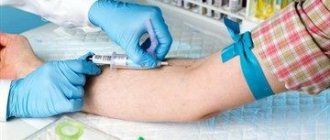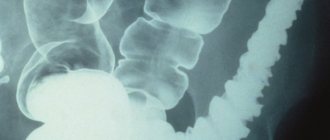What is blood taken for during the first screening?
A blood test is done to determine the level of substances such as β-hCG and PAPP-A. Beta-chorionic gonadotropin is important for the fetus in the early stages of development. Normally, the level of this hormonal substance increases and then gradually decreases.
Excessively high levels of β-hCG indicate the risk of Down syndrome. These indicators are also characteristic of early toxicosis, multiple pregnancy, and sugar toxicosis in the mother. If the level of beta-chorionic gonadotropin is below normal, pathologies such as:
- placental insufficiency;
- ectopic pregnancy;
- Edwards syndrome in the fetus.
Protein A is essential for the proper development and function of the placenta. An increased level of PAPP-A does not cause alarm, but a decreased level indicates a threat of spontaneous abortion and the development of de Lange and Down syndromes.
Is it possible to eat before screening?
Screening is a diagnostic procedure that allows the doctor to obtain information about the woman’s condition, and also allows him to see chromosomal mutations in the fetus and its developmental defects in the early stages.
When going for the first screening during pregnancy, women, as a rule, do not know what not to do and what to do. Proper preparation for the examination guarantees reliable results. The main question that worries patients is whether they can eat before screening.
The answer to this question will depend on the duration of pregnancy and the specific goal that the doctor sets for the study.
Features of the diagnostic procedure
Screening is a completely painless procedure that is performed to monitor the condition of a woman who is at risk of having a baby with disabilities.
Screening combines two procedures at once - ultrasound diagnostics and blood tests..
A biochemical blood test allows the doctor to determine the presence of a special placental protein, pregnancy-related plasma protein A, as well as human chorionic gonadotropin.
A change in the level of these substances in the patient’s blood indicates the risk of developing various chromosomal and non-chromosomal mutations. Even if a woman has differences in protein subunits from the norm, this is not a guarantee of pathology; such indicators are only a reason for a doctor to carefully monitor the course of a particular patient’s pregnancy.
The research results are compared, and the doctor draws conclusions about the development of the fetal physique, as well as deviations from the norm. The first screening is carried out from 10 to 13 weeks. If during the study there is a high risk of chromosomal abnormalities, the woman is referred for a chorionic villus biopsy.
What blood tests are there? 1911
Indications for perinatal screening are:
- the age of the pregnant woman is over 35 years;
- women who have already given birth to children with genetic disorders and Down syndrome;
- women who are carrying a child from a relative, that is, there is mixing of blood;
- women who were exposed to radiation and X-ray examinations early in pregnancy;
- women who have had spontaneous miscarriages and stillborn children;
- women who used toxic drugs or underwent chemotherapy before pregnancy, as well as those who suffered viral diseases in the first trimester of pregnancy.
A woman can undergo an examination at her own request to ensure the full health of her baby and its normal development. The second screening is carried out at 18-21 weeks of pregnancy.
The gynecologist must mentally prepare the woman for possible results, because they will more clearly reflect possible malformations of the baby in the womb.
During the examination, de Lange syndrome, Smith-Opitz syndrome, Down syndrome, Patau syndrome, Edwards syndrome, pathologies of neural tube formation, omphalocele, and triploidy may be detected.
All these diseases are incurable, and future children require special education and care. It should be noted that the examination results do not provide a 100% guarantee of the presence of malformations and mutations; they only suggest such a probability, which is indicated as a percentage.
How to prepare for the examination?
In order for the study to give the most accurate and reliable results, preparation for screening is necessary. Few people know how to prepare, so they make a number of mistakes, due to which there is a need to undergo diagnostics again. The very first thing a woman should consider is to refuse medications that were prescribed for other reasons.
Some medications may interfere with the results. If a woman has any chronic or systemic autoimmune diseases that require constant correction, additional consultation with a doctor is necessary.
He will tell you individually which medications you will need to stay off for a day, and which you can continue to use, since they will not show up in your blood quality.
Doctors do not recommend having sex with a partner the day before you go for screening. Before the examination, as well as the day before the procedure, be sure to reduce physical and emotional stress. The woman should come to the examination rested and in a calm state.
It is necessary to take a bottle of water with you; it is likely that the doctor will want to additionally examine the woman’s genitourinary system and kidneys.
You should drink water only after the doctor’s instructions; the procedure should be carried out strictly on an empty stomach; you should not eat at all. Is it possible to eat before screening? Absolutely all women who are preparing for tests are interested.
It should be noted that the pre-screening diet is only required the first time so that the blood test is as accurate as possible.
When the second screening is done the evening before the study, a light dinner is allowed, possibly even with meat and fatty dishes, but in small quantities.
It is important not to eat 4 hours before the test before screening.
Returning to how to prepare for the first examination, and whether it is possible to eat heavy foods, it should be noted that there is a clear list of foods that doctors have allowed and which have been prohibited.
Mandatory diet
The diet should exclude highly allergenic foods, such as:
- seafood and all types of fish;
- honey;
- chicken eggs,
- cow and goat milk;
- fruits and berries that are red or orange in color;
- coffee and cocoa;
- alcohol-containing and carbonated drinks;
- smoked and canned products;
- chocolate and foods high in sugar;
- mushrooms;
- nuts;
- legumes;
- wheat;
- photo products made from herbs;
- processed beans and watermelon.
A woman should give up all of the above products three days before the test.
Please note that if a pregnant patient belongs to the group of hypersensitive individuals, then throughout pregnancy it is better for her to avoid these foods or eat them in small quantities.
Low-allergenic products that are allowed for consumption three days before testing include kefir, fermented baked milk and similar fermented milk products, lean pork and beef, greens, chicken meat, vegetables, olive oil, dried fruits, semolina, pearl barley and rice porridge, liver .
Eating a portion of the above products will be very useful for a woman who is carrying a baby, because all of them are not only low allergenic, but also very rich in nutrients and macroelements.
What does a general blood test show during pregnancy? 34528
Separately, I would like to note the moment of heat treatment of food; a day before taking a blood test for biochemical screening, the products chosen for consumption should be boiled or stewed.
Baking or frying dishes in sunflower oil is prohibited. The best options would be mashed potatoes, cereals and light salads with fresh vegetables.
After the woman has had the analysis, she can return to her usual diet without limiting herself to her favorite foods.
Whether fasting screening is carried out or not, now you know, and you will be aware of how to properly prepare if the need suddenly arises to undergo this type of perinatal diagnosis.
Perinatal screenings cause a lot of controversy and controversy, some consider them inappropriate, because they once managed without it, others have a positive attitude towards such diagnostics.
In any case, modern methods of examining women cannot be underestimated, because it is thanks to correct diagnosis that the correct treatment can be started in a timely manner.
A woman has the right to decide for herself whether she is ready to raise a child with genetic abnormalities and developmental defects, or whether it is better to terminate the pregnancy in the early stages. You can undergo perinatal screening at any medical institution without a doctor’s referral.
Source: https://1diagnos.ru/issledovaniya-pri-beremennosti/skrining/mozhno-li-kushat-pered-skrinningom.html
First screening: what preparation is needed for donating blood?
Before donating blood for beta-human chorionic gonadotropin and protein-A, a number of conditions must be met. You should:
- give up intimacy in 2-3 days;
- the day before, exclude fatty meat, chocolate, and seafood from the menu;
- do not eat anything 6 hours before the test.
It is also important to be in a calm state, not to be nervous, and not to speed up your pace when walking. Stress and physical activity can cause an increase in the concentration of certain substances in the body, which will distort the test results.
Reliability of analyzes and risks
Interpretation of blood test results for screening should only be carried out by a qualified physician who is familiar with the patient’s medical history. It should also be taken into account that screening for twins will show a completely different result. The second child increases the levels of certain chemicals in the mother's body. Every doctor has information with recommended standards for the parameters under study.
However, the individual characteristics of the body and the composition of the patient’s blood before pregnancy should be taken into account.
With the screening analysis and the correctness of the research at all stages, the reliability of the result is estimated at 95%. However, the analysis cannot accurately determine whether the fetus will have a pathology or not. The degree of risk is assessed.
The results contain numerical designations and verbal expression:
- “Low”/1:10000 (and below this mark), this means there is a low degree of risk for the development of any pathological conditions of the fetus.
- “Medium”/1:1000 means that there is an average degree of risk, additional examination may be required.
- “High”/1:380 means that there is a high probability that the fetus will have developmental disorders. Additional tests are recommended.
- “Extremely high”/1:100 means that the woman needs additional examinations and consultation with a genetic specialist. In some cases, the doctor may recommend termination of the pregnancy.
After receiving the results, a good or bad prognosis is possible. Based on the results of the first prenatal examination, some types of pathologies can be excluded. What to do if the screening is bad? First of all, don't worry, stress can harm you much more than the possible risks. You will have to decide how prepared future parents are for the birth of a child with special needs.
What should you not eat before your first blood screening?
2-3 days before the double test, you must adhere to a special diet. This is a very important requirement, since failure to comply will result in distorted results.
Before blood screening you need to avoid:
- fried and spiced foods;
- fatty meat;
- meat products (sausage, lard, bacon, smoked meats);
- canned food
Chocolate, nuts, chicken eggs, seafood, cabbage, rye bread, and legumes are also prohibited.
Cereals, butter and vegetable oil, pasta, honey, fresh and boiled vegetables are allowed. For meat dishes, boiled chicken is shown.
First screening - you can drink the water!
I had questions about “to drink or not to drink” - now I found the answer.
First trimester screening is carried out in two stages:
First, an ultrasound screening is done. If this is done transvaginally, then no preparation is required. If it is done abdominally, then it is necessary that the bladder is full. To do this, you need to drink half a liter of water half an hour before the test.
By the way, the second screening during pregnancy is carried out transabdominally, but does not require preparation.
Biochemical screening. This word refers to taking blood from a vein.
- Considering the two-stage nature of the study, preparation for the first study includes:
- bladder filling – before 1 ultrasound screening
- fasting at least 4 hours before taking blood from a vein.
If you plan (and this is the optimal option for perinatal diagnostics of the 1st trimester) to undergo both ultrasound diagnostics and donate blood from a vein on the same day, you need: the entire previous day to deny yourself allergenic foods: citrus fruits, chocolate, seafood, exclude completely fatty and fried food (1-3 days before the test) before the test (usually blood is donated for screening at 12 weeks before 11:00) go to the toilet in the morning, then either do not urinate for 2-3 hours, or drink half an hour before the procedure liters of water without gas.
- Chat for moms
- You are missing here!
- Oh, Christmas trees! And I had letters on a dark background... I’ll fix it now)))
Yes. and even without water so much - it’s crazy... and if you still get up early in the morning.
G told me that I could drink it, so I started looking for a more precise answer online)))
Diagnostics
Every woman expecting a child has the right to decide independently whether she needs to undergo screening. From the point of view of the law, this type of examination is recommended by doctors, but the expectant mother has the right to refuse tests.
However, this is an unwise approach; from the point of view of the health of the mother and baby, it is better to find out about any possible deviations or disorders as early as possible.
The results of 1 screening provide doctors with a lot of useful information about the health and development of the unborn baby. As a rule, a standard set of studied parameters is used, which makes it possible to detect the following deviations:
- Risk of developing pathological changes in the fetus
- Down syndrome
- Patau syndrome
- Disturbances in the development and pathology of the neural tube of the fetus
- Abnormal set of chromosomes
- Physiological defects of the internal organs of the developing fetus
How are the results assessed?
When assessing the results, the doctor relies on the norms of fetal ultrasound and biochemical analysis, corresponding to certain stages of pregnancy. If a deviation from the standards is detected at one of the screening stages, additional examination is carried out. The final diagnosis is made only on the basis of several studies. The table shows the norms of ultrasound and blood tests for different periods of screening.
| Gestation period, weeks | Ultrasound indicators | Blood test parameters, mU/ml | |||||
| KTE, mm | TVZ, mm | BPR, mm | Nasal bone | Heart rate, beats/min | RARR-A | hCG | |
| 11 | 42-50 | 1,6-2,4 | 17 | not measured | 153-177 | 0,78-4,77 | 20000-95000 |
| 12 | 51-59 | 1,6-2,5 | 20 | more than 0.3 cm | 150-174 | 1,03-6,02 | 20000-90000 |
| 13 | 62-73 | 1,7-2,7 | 26 | 147-171 | 1,47-8,55 | 15000-60000 | |
When assessing the PAPP-A and hCG indicators, a coefficient is determined that indicates the level of deviations from average norms - MoM. At the first screening it should be in the range of 0.5-3. The risk of genetic pathologies is calculated using a special electronic program. The possibility of complications should not be less than 1:1380.
Many women fear that poor perinatal screening results will lead to termination of pregnancy. However, in most cases, pregnancy is taken under special control and a repeat study is prescribed after 7-14 days. Before the second examination, you must also follow a diet. Pregnancy is not maintained if the following pathologies are detected:
- absence of vital organs in the fetus;
- embryo death;
- intrauterine pregnancy.
Obstetrician-gynecologist, reproductive specialist, lactation consultant, graduated from ChSU named after. Ulyanova with a specialization in gynecology, mammology Read more »
What is a survey and what is its purpose?
1st trimester screening includes ultrasound and biochemical blood test. Its main goal is the early detection of congenital pathologies of fetal development. Based on the examination results, doctors can assume that the child has chromosomal abnormalities such as Down, Edwards, Patau, and De Lange syndromes. You need to undergo screening from 11 to 14 weeks of pregnancy.
Ultrasonography
During the first screening, ultrasound is performed in 1 of 2 ways:
- Transvaginally. The sensor is inserted shallowly into the vagina.
- Transabdominal. The examination is done through the abdominal wall.
The first method is preferable because it allows you to get a clearer picture. The second method is used in the following cases:
- the patient is allergic to latex (since a latex condom is placed on the vaginal sensor);
- refusal of the expectant mother to undergo the procedure due to moral and religious beliefs.
When performing an ultrasound at 12-13 weeks, the specialist evaluates the site of attachment of the fertilized egg, as well as the following fetal parameters:
- size from coccyx to crown (KTR);
- characteristics of the nasal bone;
- thickness of the collar zone (TVZ);
- development of the brain hemispheres;
- head parameters (circumference, interparietal size (IPD), length from forehead to occiput);
- measurements of formed tubular bones;
- location and characteristics of internal organs;
- abdominal circumference.











